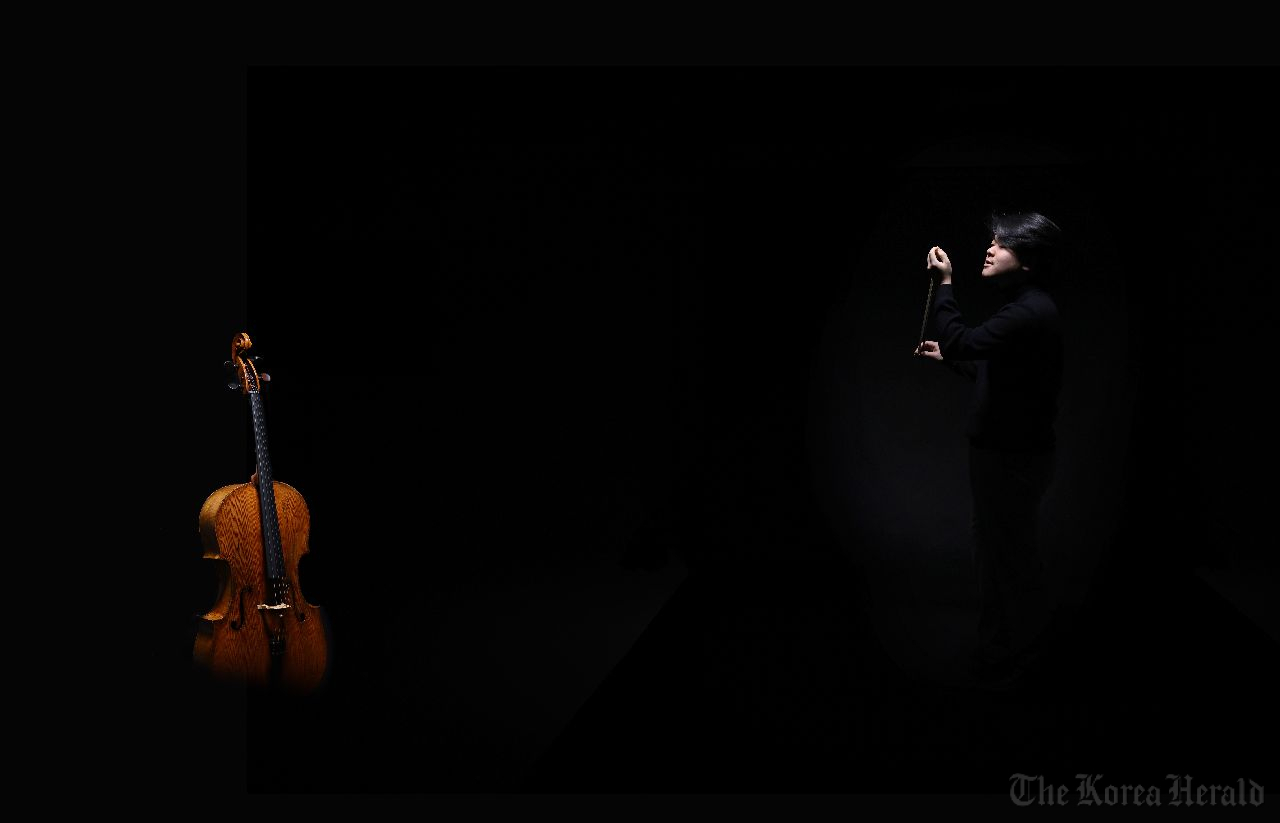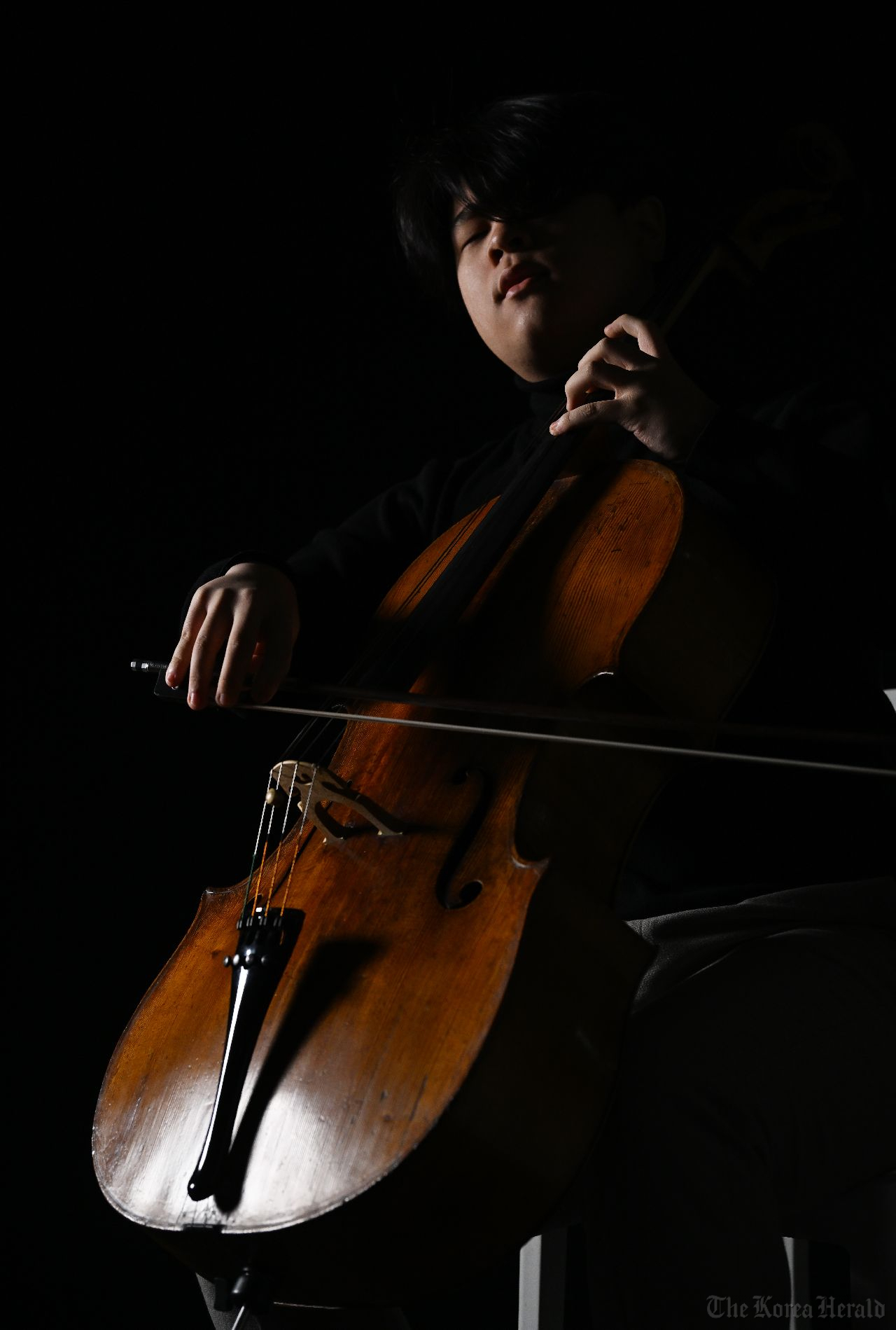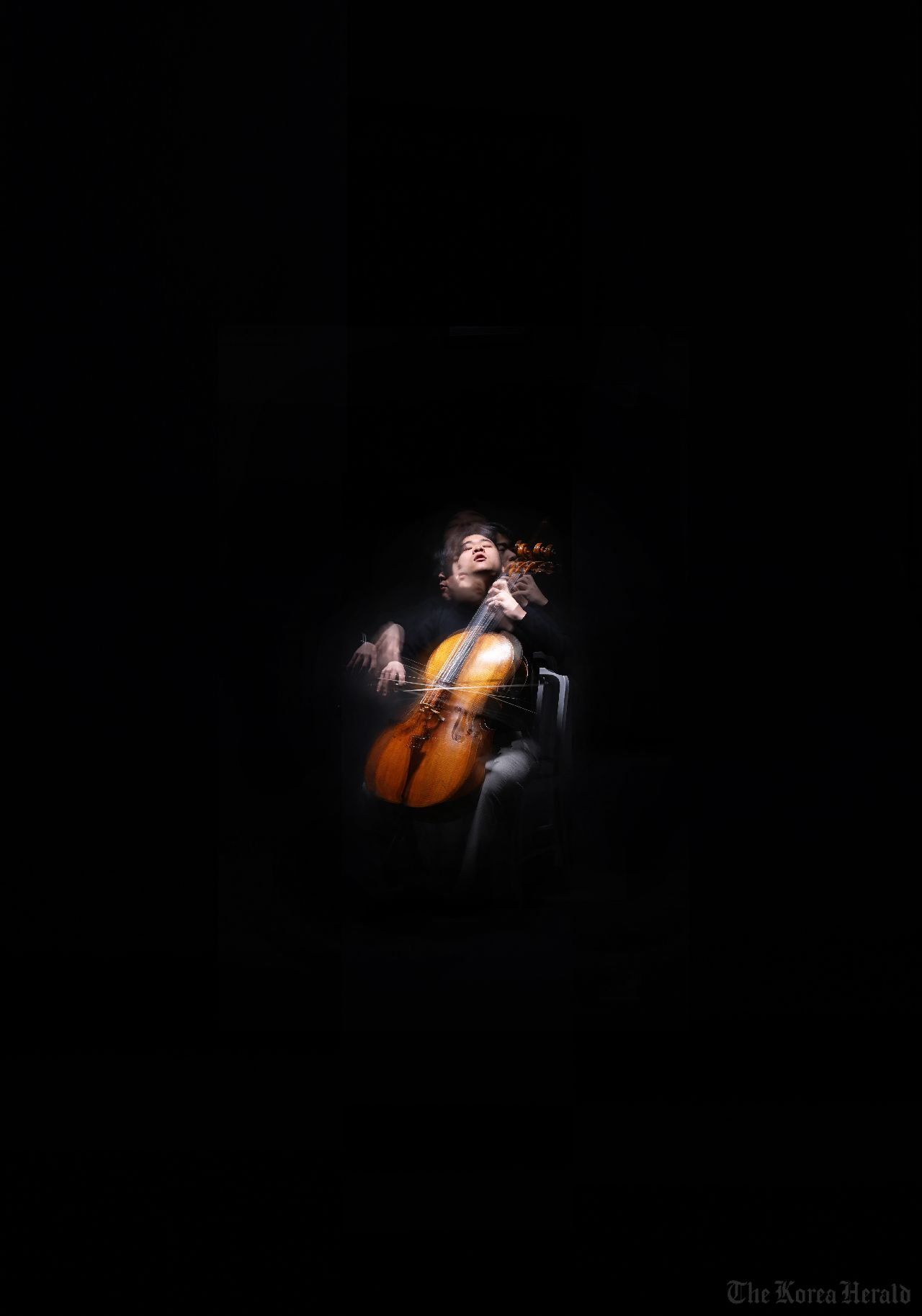 |
Cellist Han Jae-min poses for photos during an interview with the Korea Herald on Feb. 2. (Park Hae-mook/The Korea Herald) |
Cellist Han Jae-min, during the final stage of a competition in November last year, was 12 minutes and 50 seconds into Yun I-sang's Concerto for Cello and Orchestra when the thickest C string snapped. He stopped with a smile on his face, left the stage to restring his instrument and took to the stage again, picking up where he had left off, per competition rules. This happened once again about 13 minutes after Han had resumed playing. His face a bit tenser than the first time, but still with a smile, Han asked permission from the judge and replaced the string once again. Then with only 90 seconds left of the same piece, that same string became slackened.
“The piece is intense so I couldn’t possibly stop for a third time because it would ruin the performance for good. So I kept going. Fortunately, I was able to change my fingering and there were only a few notes for the C string for the remainder of the piece,” Han said in a recent interview with The Korea Herald.
That performance at the International Isang Yun Competition was the third final he competed in within just 19 months, and it made him nervous like never before.
That type of pressure was rare for Han, who had already won three prizes at two international competitions in 2021 alone.
In 2021, Han -- born in 2006 -- became the youngest student to be admitted to the prestigious Korean National University of Arts, where his close friend pianist Lim Yun-chan is also a student. In 2020, Han had entered the George Enescu International Competition that is usually reserved for adults. He did this to compare his abilities as a cellist without added expectations. When he submitted a video of his performance to the competition -- COVID-19 was raging around the world -- his father asked if he would make it to the next round. Han replied, “Probably not.” His father referred to the entry fee with a joke, “Well, there goes 100 euros."
Han predicted wrong.
In 2021, He would become the youngest winner of the competition that was established in 1958 in Romania. Five months later, he brought home two prizes from the Geneva International Music Competition.
As Han began to be recognized, the pressure grew.
“I don’t think I’d ever been nervous like that before. I saw my first round on video and my hands were shaking,” Han recalled, adding that the pressure of participating in competitions was complicated by the fact that the process took longer than expected due to the COVID-19 pandemic, which pushed back the competition by several months.
 |
Cellist Han Jae-min plays his new cello during an interview with The Korea Herald on Feb. 2. (Park Hae-mook/The Korea Herald) |
“After the Isang Yun Competition, I intentionally didn’t practice for about two weeks, the longest time not playing the cello. I felt like I would regret it if I didn’t spend this time (without the cello),” he said.
During those two weeks, Han, who turns 17 this month, spent his time much like other teenagers, playing soccer, which was the first among his favorite things to do, along with cooking, hanging out with friends and watching movies.
He probably sensed that his solo career would involve practicing religiously and countless international tours ahead, especially now that he has joined the roster of KD Schmid, which manages top musicians such as pianist Cho Sung-jin and cellist Yo-yo Ma.
Han was born to flutist parents. He tried flute, piano and violin, but cello was his choice at the age of 5.
Despite his parents’ reluctance to have their son become a professional musician, the young boy was determined to be a cellist, studying and training under Lee Kang-ho and Chung Myung-wha. Aged 10, Han, from Wonju, Gangwon Province, debuted with the Wonju Philharmonic Orchestra.
 |
Cellist Han Jae-min (Park Hae-mook/The Korea Herald) |
Now the year ahead will be one for getting used to a new environment and his new instrument, loaned by the Samsung Foundation of Culture.
“This instrument was made in 1687 by Giovanni Grancino,” he said. "I have spent about three weeks with the instrument and this is quite a tough one to get used to, but I'm really excited about playing this cello for the next two years."
Han's new instrument was previously used by renowned Korean cellists Mun Tae-guk and Yang Sung-won.
With the new instrument, the adolescent virtuoso is likely to leave the comforts of his home country as he seeks a new journey outside Korea. Han is highly likely, as early as this year, to move to Germany to pursue his cello studies and more opportunities to perform.
Already he has a number of performances coming up abroad. Starting with Norway on March 17, he will later perform in New Zealand and Italy throughout the year.
More importantly, Han knows very well that how he follows up after winning the previous competitions is critical for his journey to becoming a one-of-a-kind cellist.
He shared an episode from a session with Korea's renowned cellist Chung Myung-wha when they were talking about a Dvorak piece.
"I talked about a performance that I saw on YouTube. The teacher told me that it is easy to watch others’ performances that are readily available online, but it might interfere with one’s own interpretation. Thereon, I decided I should develop my own world. So I try to avoid referencing other performers' performances.”
Han hopes to be remembered as a musician who adored music and introduced pieces scavenged from classical music's back catalog to a wider audience. "Lately, I'm into contemporary classical music and really enjoy discovering less popular pieces," Han said.
"What I want to do now is leave competitions behind and find my own musical style," Han said.
"I'm still young and it shows, to be honest. So I want to become more mature musically."
This is the first in the "Rising Virtuosos" series introducing the next generation of talented and accomplished classical musicians of Korea. The series will give readers an intimate look at the exceptional artistry and passion of young musicians who are making their mark on the international classical music scene. --Ed.







